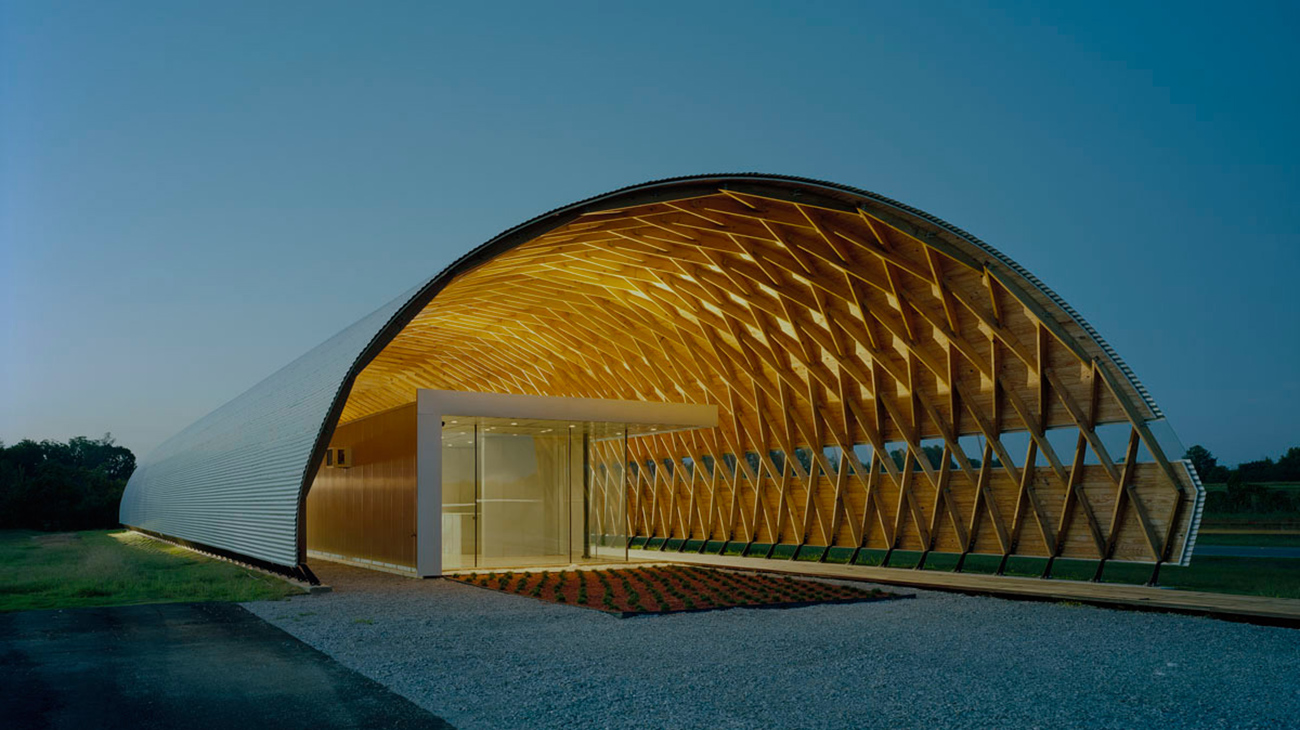Andrew Freear
Andrew Freear of Rural Studio and Auburn University lectures on recent projects.
October 19, 2009
7:00 p.m.
Current Work is a lecture series featuring leading figures in the worlds of architecture, urbanism, design, and art.
Andrew Freear is the Wiatt Professor at Auburn University Rural Studio. After the untimely death of the studio’s cofounder, Samuel Mockbee, Freear became the director of the Newbern, West Alabama, studio in 2002. He will present its work and educational ethos.
The Rural Studio is a hands-on architectural pedagogy that not only teaches students to design and build charity homes and community projects, but also improves the living conditions in rural west Alabama. The focus of the students’ thesis year is a community-based project and sustainable materials research. Working in small teams, the students experience the Arts & Crafts “hands-on” building tradition and work directly with the community. Typically in teams of three or four, the students conceive of the project and program, raise funds, write grants, make community presentations, and design and build the projects, from foundation to roof. Projects have ranged from baseball fields and community centers to a house made of cardboard.
Having moved to Alabama nine years ago, Freear lives in the small rural community of Newbern, west Alabama, where his main role, aside from directing the Rural Studio, is serving as a thesis project advisor to fifth-year undergraduate students and their building projects. Educated at the Polytechnic of Central London and the Architectural Association, London, England, he has practiced extensively in London and Chicago, and taught design studio for 5 years at the University of Illinois at Chicago.
His work at the Rural Studio has been published in Architectural Record, Architectural Review, Progressive Architecture, Dwell, Domus, Abitare, and Lotus magazines. His work is also covered extensively in two books by Andrea Oppenheimer Dean and Timothy Hursley, the most recent entitled Proceed and be Bold: The Rural Studio after Samuel Mockbee.
Andrew Freear has designed, supervised, and built Rural Studio exhibits in Chicago, Cincinnati, Vienna, Barcelona, as well as at the 2002 Whitney Biennial in New York, the 2005 Sao Paulo Bienal of Architecture in Brazil, and the 2008 Venice Biennale. He has received awards for Distinguished Service to Rural Life from the Rural Sociological Society, the Educator of Distinction Award from the American Society of Interior Designers, and a Commendation Award from the Architectural Review for Emerging Architects.
In 2006 Freear was honored with The Ruth and Ralph Erskine Nordic Foundation Award, which aspires to promote urban planning and architecture that is functional, economical, and beautiful, as well as to the advantage of underprivileged and deprived groups in any society. He is the first US-based architect to win this prestigious award. Most recently he was nominated as one of five finalists in the second edition of the Global Award for Sustainable Architecture, 2008. The purpose of this new architecture prize was to honor annually a living architect who moves toward sustainability.
Introduced by Susan Rodriguez. Rodriguez is a design principal at Polshek Partnership Architects and serves on The Architectural League’s board of directors. Her recent projects include Schermerhorn House, a partnership with Common Ground.
Moderated by David Lewis. Lewis is a principal at Lewis.Tsurumaki.Lewis (LTL Architects) and directs The Design Workshop, a design-build initiative, at Parsons The New School for Design.
Support
This lecture is cosponsored by The Irwin S. Chanin School of Architecture of The Cooper Union.
This program is made possible, in part, by public funds from the National Endowment for the Arts and the American Recovery and Reinvestment Act, the New York State Council on the Arts, a State Agency, and the New York City Department of Cultural Affairs, in partnership with the City Council.




Explore
Jennifer Bonner: Just roofs
Jennifer Bonner lectures on elements of her work at MALL, including roof plans and faux finishing.
Arverne rebuilds: Water’s Edge, Arverne-by-the-Sea, and Arverne View
Emily Nathan covers the recent history of Arverne's development and its impact on those who call it home.
Can rural black churches survive sprawl?
Long a vital community resource in the South, African American churches face growing threats. Cadaster believes designers can help.

